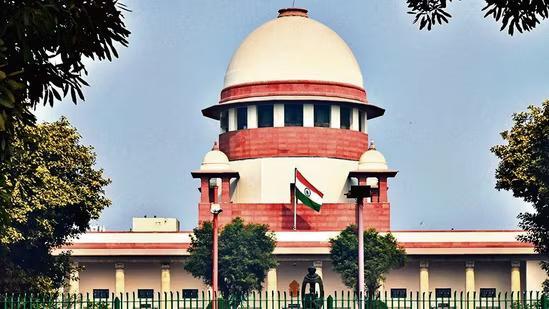
No Action Against Owners of 10 & 15-yr-old Diesel & Petrol Vehicles for 4 Weeks: SC
The Supreme Court has passed a significant order in response to an application filed by the Delhi government, challenging the ban on over 10-year-old diesel and 15-year-old petrol vehicles in the capital as a pollution control measure. In a major relief to vehicle owners, the court has ruled that no “coercive” action will be taken against them for the next four weeks.
The Delhi government had approached the Supreme Court earlier this month, seeking a stay on the ban on old vehicles, which was implemented by the National Green Tribunal (NGT) in September 2015. The NGT had directed the Delhi government to implement the ban to reduce pollution in the city. The ban prohibits the registration of new diesel vehicles with an engine capacity of over 2,000cc and new petrol vehicles with an engine capacity of over 1,500cc, if they are more than 10 years old.
The Delhi government, in its application to the Supreme Court, argued that the ban was arbitrary and violative of the fundamental rights of citizens. The government claimed that the ban would cause hardship to many people who rely on their vehicles for daily commuting and other essential activities.
The Supreme Court, while hearing the application, observed that the NGT’s order was not sustainable and needed to be reconsidered. The court noted that the NGT had not taken into account the practical difficulties and financial implications of the ban on vehicle owners.
In its order, the Supreme Court said that no coercive action would be taken against the owners of over 10-year-old diesel and 15-year-old petrol vehicles in Delhi for the next four weeks. The court also directed the Delhi government to file an affidavit stating the steps it would take to implement the ban in a more practical and effective manner.
The Supreme Court’s order is a significant relief to vehicle owners who were facing the threat of fines and even confiscation of their vehicles for non-compliance with the ban. The court’s decision is also seen as a victory for the Delhi government, which had been facing criticism for its handling of the pollution crisis in the city.
The ban on old vehicles was imposed as part of a larger effort to reduce pollution in Delhi, which has become one of the most polluted cities in the world. The city’s air quality has been deteriorating rapidly in recent years, with levels of particulate matter (PM) and nitrogen dioxide (NO2) consistently exceeding safe limits.
The Delhi government has been implementing a range of measures to reduce pollution in the city, including the ban on old vehicles, the promotion of electric and hybrid vehicles, and the implementation of stricter emission norms for vehicles. However, the ban on old vehicles has been a contentious issue, with many people arguing that it is unfair to target a specific group of vehicle owners.
The Supreme Court’s order has given the Delhi government four weeks to rethink its strategy and come up with a more practical and effective plan to reduce pollution in the city. The government will need to file an affidavit stating its plans and the steps it will take to implement the ban in a more sustainable manner.
In conclusion, the Supreme Court’s order is a significant development in the ongoing efforts to reduce pollution in Delhi. The court’s decision to stay the ban on old vehicles for four weeks is a relief to vehicle owners and gives the Delhi government an opportunity to rethink its strategy and come up with a more practical and effective plan to reduce pollution in the city.






